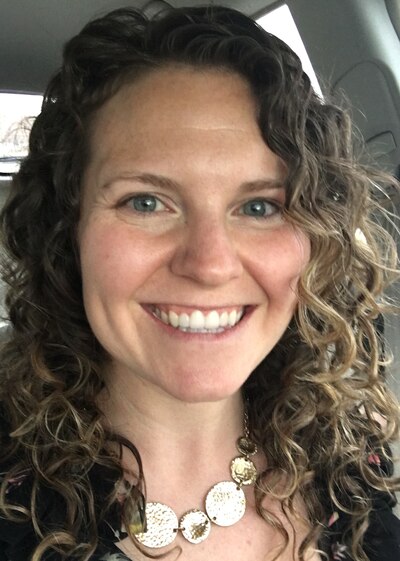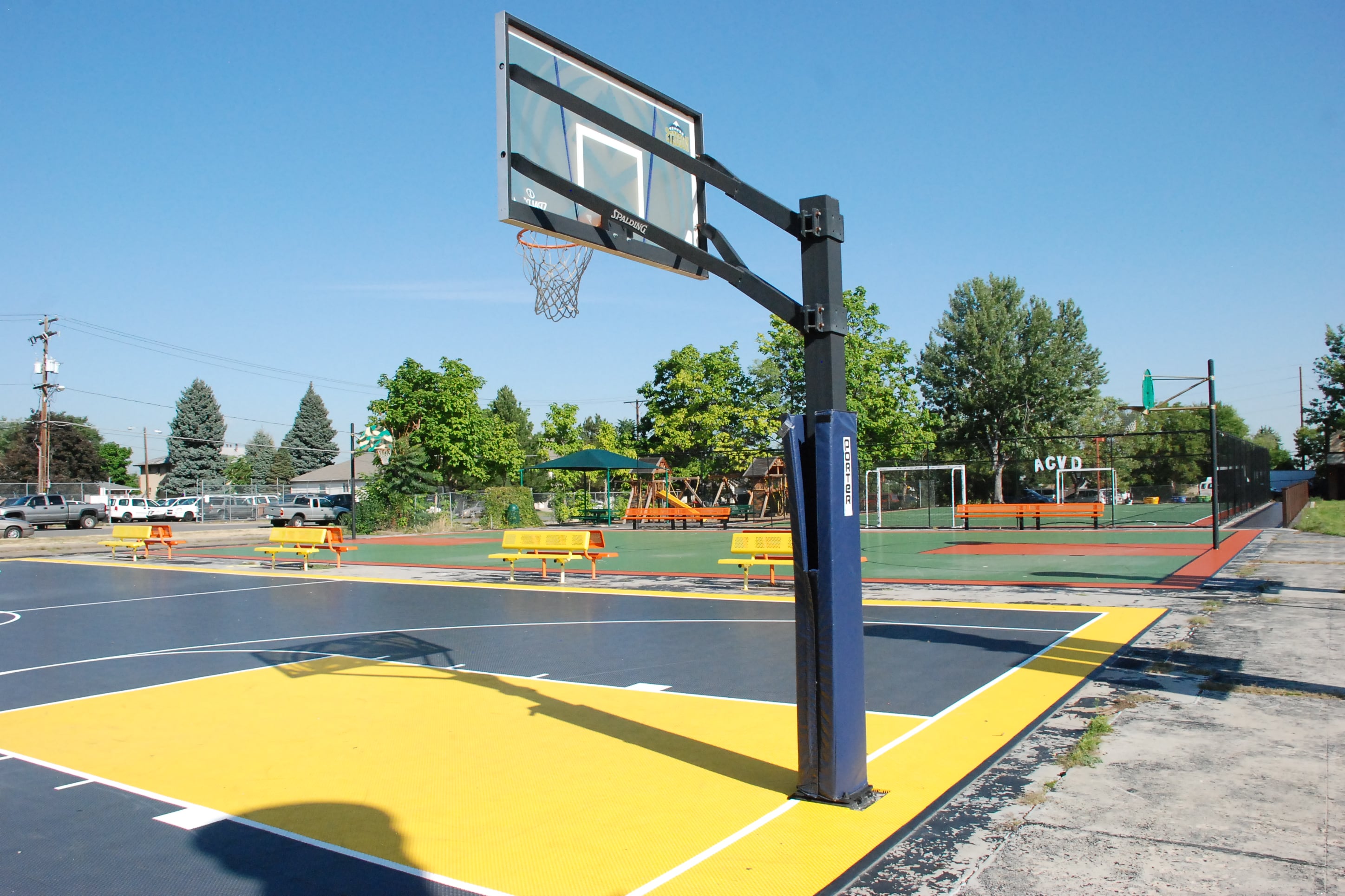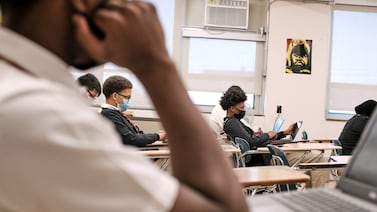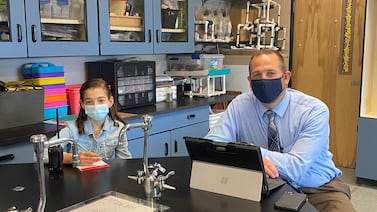Paige Powers is a school psychologist, but when a student needed a basketball enthusiast, she answered the call.
She learned about the players on the boy’s favorite team and made time to play basketball with him for 10 minutes every day. Gradually, she earned the boy’s trust and worked with him to reign in the emotions that often flared up in the classroom.

“Basketball was the way to his heart,” Powers said.
A bilingual school psychologist in the 38,000-student Aurora district, Powers was recently named the Culturally and Linguistically Diverse Populations Advocate of the Year by the Colorado Society of School Psychologists and the Colorado Bilingual School Mental Health Network. She talked to Chalkbeat about a heart-breaking phone call, a silver lining of remote learning, and how she relieves stress at the end of the day.
This interview has been lightly edited for length and clarity.
Why did you become a bilingual school psychologist?
What initially drew me to the field was the idea that outside of the home environment, schools have the most influence on a child’s development and well-being. Schools are more than a place for academic endeavors, they are a confluence of resources for children, families and communities. As a school psychologist I’m positioned to help people access and navigate the systems and supports available.
We have training in crisis response, counseling, behavioral and academic intervention, consultation, assessment, and how to evaluate systems within our schools and districts. We develop relationships with students, but also the people surrounding our students to create a network of support and advocacy. To me, schools are a foundational place to create, teach, and practice equity.
The bilingual part came because I studied Spanish from elementary school on, and had the opportunity to study abroad in Spain, during a summer in high school and a semester in college. I minored in Spanish in college, then during graduate school I had the chance to work in schools with primarily Spanish-speaking students and families.
Tell us how you’re doing your job while students are learning remotely.
Lots of video and phone calls! I am part of our district bilingual assessment team, meaning my primary job is to make sure our English Language Learners get fair and equitable special education evaluations. This has been really challenging during remote learning and has involved a lot of critical thinking, consultation with school teams, and partnerships with parents and caregivers.
What’s the biggest misconception you’ve encountered about your role in schools?
I think mental health in schools can seem like a gray area for many folks. I think a lot of people see school psychologists as playing the same role as social workers or counselors. After all, we are all there to support students’ mental health needs. That said, each of those disciplines have very different training and preparation in terms of how to work in a school and within the school system. If you don’t know what your mental health provider’s role is at your school, I highly encourage you to ask!
What has been the biggest challenge for you this fall? Are there any silver linings?
The biggest challenge has been handling the uncertainty and changing circumstances around remote, hybrid, and in-person learning. Every student is having a different experience with education right now, and accounting for those differences through the lens of special education eligibility has been a challenge.
The biggest silver lining has been working more closely with parents and families. We are relying more than ever on our parents and caregivers to facilitate learning for students, so having more frequent contact and more in-depth conversations is crucial. I hope this is something we carry forward.
You work with English learners. What do you see as most crucial in keeping them learning during the pandemic?
I would say access. Our district has been working so hard to make sure our students have the necessary technology and internet access to keep them connected during remote learning. Of course, we all know there is so much more to access than hardware. I think it’s important to keep in mind that every family is experiencing this time differently, so having compassion, understanding, and creativity to keep kids logging in is also part of access. (Sometimes, that means spending an extra 10 minutes with the parent describing how to log their student in.)
Tell us about a time when you managed to connect with a student facing a difficult situation.
When I was working in a school, we had a student who was going through a rough time at home. There were so many things outside of his control happening in his life, and he was having a difficult time in the classroom because of it. Basketball was the way to his heart, so I learned all about his favorite team and players, and every day at the end of the day we would spend at least 10 minutes playing outside or in the gym. Eventually, we built up enough rapport on the court that he felt comfortable coming to my office and learning some emotional regulation skills.
Tell us about a memorable time — good or bad — when contact with a student’s family changed your perspective or approach.
I received a heartbreaking text over the summer from a parent I had met while evaluating their child in the winter of 2019. The parent reached out saying they had lost their job, but that they were also undocumented so their options were limited. The family had moved to try for better educational opportunities for the student. They were wondering if I had any ideas for employment. That really put into perspective the realities that many families are facing during this time.
You spend your days trying to help students and staff with any number of things. How do you wind down after a stressful day?
I go through phases, but right now I’m running a lot (at least until the weather gets too cold). I’m lucky to live in Colorado, which is essentially a giant playground if you like the outdoors. Skiing, hiking, camping, and just enjoying what nature has to offer here are all top of the list. Cooking, reading, and baking are also de-stressors for me.









